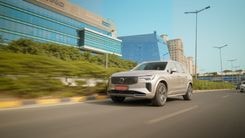Volvo Cars To Stop Developing New Diesel Engines: CEO
car&bike Team
1 min read
May 18, 2017, 04:59 PM

Key Highlights
- The cost to reduce emissions of nitrogen oxide is becoming too expensive
- Volvo will therefore invest in electric and hybrid technology
- Its first pure electric model due on the market in 2019
Swedish carmaker Volvo will not develop any new diesel engines as the cost of reducing emissions of nitrogen oxide is becoming too expensive, Chief Executive Hakan Samuelsson was quoted as saying on Wednesday.
"From today's perspective, we will not develop any more new-generation diesel engines," Samuelsson told Germany's Frankfurter Allgemeine Zeitung in an interview.
Samuelsson said Volvo would keep developing current diesel-powered models introduced in 2013 to meet future emissions standards, but then the costs of keeping them compliant with higher anti-pollution standards would no longer be worth it, with the current generation likely to be produced till about 2023.
Instead, Volvo will invest in electric and hybrid cars, with its first pure electric model due on the market in 2019. "We have to recognise that Tesla has managed to offer such a car for which people are lining up. In this area, there should also be space for us, with high quality and attractive design," Samuelsson said.
Samuelsson has previously said that tighter emissions rules will push up the price of diesel-engined cars to the point where plug-in hybrids will become an attractive alternative.
The average carbon dioxide emissions limit for European carmakers' fleets will need to fall from 130 grams per kilometre to 95 grams in 2021, forcing them to invest more in exhaust emissions technology.
Diesel cars account for over 50 percent of all new registrations in Europe, making the region by far the world's biggest diesel market. Volvo, owned by China's Geely, sells 90 percent of its XC 90 offroaders in Europe with diesel engines.
The scandal over Volkswagen's cheating of US environmental tests to mask emissions of nitrogen oxides, which can cause or aggravate respiratory disease, means manufacturers are facing intense scrutiny over the true level of pollutants being emitted by their cars.
Goldman Sachs believes a regulatory crackdown could add 300 euros ($325) per engine to diesel costs that are already some 1,300 euros above their petrol-powered equivalents, as carmakers race to bring real NOx emissions closer to their much lower test-bench scores.
"From today's perspective, we will not develop any more new-generation diesel engines," Samuelsson told Germany's Frankfurter Allgemeine Zeitung in an interview.
Samuelsson said Volvo would keep developing current diesel-powered models introduced in 2013 to meet future emissions standards, but then the costs of keeping them compliant with higher anti-pollution standards would no longer be worth it, with the current generation likely to be produced till about 2023.
Instead, Volvo will invest in electric and hybrid cars, with its first pure electric model due on the market in 2019. "We have to recognise that Tesla has managed to offer such a car for which people are lining up. In this area, there should also be space for us, with high quality and attractive design," Samuelsson said.
Samuelsson has previously said that tighter emissions rules will push up the price of diesel-engined cars to the point where plug-in hybrids will become an attractive alternative.
The average carbon dioxide emissions limit for European carmakers' fleets will need to fall from 130 grams per kilometre to 95 grams in 2021, forcing them to invest more in exhaust emissions technology.
Diesel cars account for over 50 percent of all new registrations in Europe, making the region by far the world's biggest diesel market. Volvo, owned by China's Geely, sells 90 percent of its XC 90 offroaders in Europe with diesel engines.
The scandal over Volkswagen's cheating of US environmental tests to mask emissions of nitrogen oxides, which can cause or aggravate respiratory disease, means manufacturers are facing intense scrutiny over the true level of pollutants being emitted by their cars.
Goldman Sachs believes a regulatory crackdown could add 300 euros ($325) per engine to diesel costs that are already some 1,300 euros above their petrol-powered equivalents, as carmakers race to bring real NOx emissions closer to their much lower test-bench scores.
© Thomson Reuters 2017
(This story has not been edited by NDTV staff and is auto-generated from a syndicated feed.)
Latest News
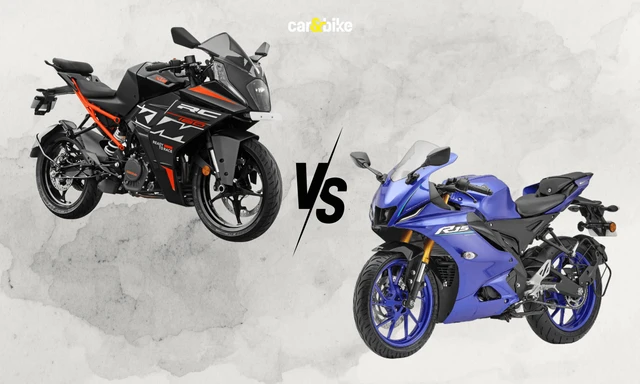 Jafar Rizvi | Jan 9, 2026KTM RC 160 vs Yamaha R15: Specifications, Features, Prices ComparedKTM’s new RC 160 goes head-to-head with the Yamaha R15 in the entry-level sportbike category. Here is how the two fare on paper.1 min read
Jafar Rizvi | Jan 9, 2026KTM RC 160 vs Yamaha R15: Specifications, Features, Prices ComparedKTM’s new RC 160 goes head-to-head with the Yamaha R15 in the entry-level sportbike category. Here is how the two fare on paper.1 min read Amaan Ahmed | Jan 9, 2026Suzuki E-Access Launched At Rs 1.88 Lakh; LFP Battery Promises 95 KM RangeOriginally confirmed for a June 2025 launch, Suzuki's first electric two-wheeler for India has finally arrived almost a year after making its global debut at Auto Expo 2025.3 mins read
Amaan Ahmed | Jan 9, 2026Suzuki E-Access Launched At Rs 1.88 Lakh; LFP Battery Promises 95 KM RangeOriginally confirmed for a June 2025 launch, Suzuki's first electric two-wheeler for India has finally arrived almost a year after making its global debut at Auto Expo 2025.3 mins read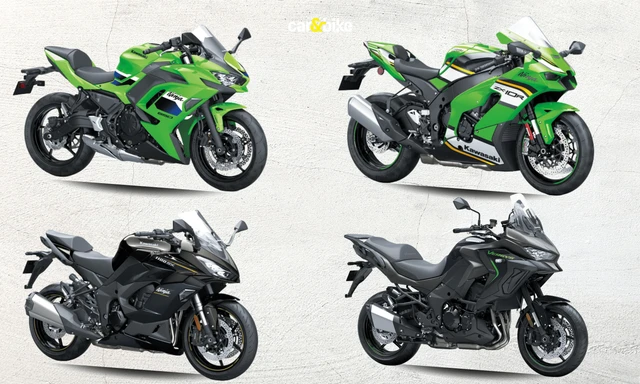 car&bike Team | Jan 9, 2026Kawasaki Ninja, Versys Models Offered With Discounts Of Up To Rs 2.50 LakhThe Ninja ZX-10R is offered with maximum benefits, followed by the Ninja 1100SX and Versys 1100.1 min read
car&bike Team | Jan 9, 2026Kawasaki Ninja, Versys Models Offered With Discounts Of Up To Rs 2.50 LakhThe Ninja ZX-10R is offered with maximum benefits, followed by the Ninja 1100SX and Versys 1100.1 min read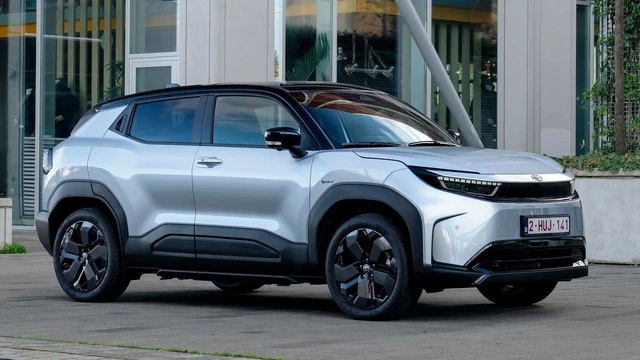 Bilal Firfiray | Jan 9, 2026Toyota Urban Cruiser EV: What To ExpectToyota will be introducing an all-electric vehicle for the first time in India. It is the Toyota-badged version of the soon-to-be-launched Maruti Suzuki e-Vitara, and here’s everything we expect from it.1 min read
Bilal Firfiray | Jan 9, 2026Toyota Urban Cruiser EV: What To ExpectToyota will be introducing an all-electric vehicle for the first time in India. It is the Toyota-badged version of the soon-to-be-launched Maruti Suzuki e-Vitara, and here’s everything we expect from it.1 min read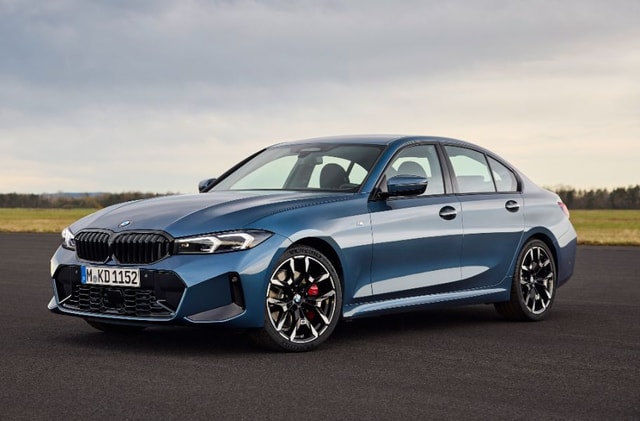 Jaiveer Mehra | Jan 8, 2026Auto Sales 2025: BMW Group India Sold 18,001 Cars And SUVs, Its Highest Ever Yearly FigureCarmaker delivered 17,271 units under the BMW brand and 730 units under Mini.1 min read
Jaiveer Mehra | Jan 8, 2026Auto Sales 2025: BMW Group India Sold 18,001 Cars And SUVs, Its Highest Ever Yearly FigureCarmaker delivered 17,271 units under the BMW brand and 730 units under Mini.1 min read car&bike Team | Jan 8, 2026Suzuki Motorcycle India Achieves 10 Million Production MilestoneThe 10 millionth unit was an Access 125 scooter, which rolled out from Suzuki’s Gurugram plant.1 min read
car&bike Team | Jan 8, 2026Suzuki Motorcycle India Achieves 10 Million Production MilestoneThe 10 millionth unit was an Access 125 scooter, which rolled out from Suzuki’s Gurugram plant.1 min read
 Bilal Firfiray | Jan 9, 2026Toyota Urban Cruiser Hyryder: 10,000 km Long-Term ReviewAfter spending over three months and 10,000 km with the Toyota Urban Cruiser Hyryder Hybrid, we were impressed by its real-world mileage, seamless hybrid, practical comfort, and Toyota reliability. Is it the best C-SUV then?5 mins read
Bilal Firfiray | Jan 9, 2026Toyota Urban Cruiser Hyryder: 10,000 km Long-Term ReviewAfter spending over three months and 10,000 km with the Toyota Urban Cruiser Hyryder Hybrid, we were impressed by its real-world mileage, seamless hybrid, practical comfort, and Toyota reliability. Is it the best C-SUV then?5 mins read Seshan Vijayraghvan | Jan 8, 20262026 Mahindra XUV 7XO Review: Big On Tech, Bigger On ComfortThe new Mahindra XUV 7XO is flashier, feature packed, and comes with more advanced tech. But are the changes just incremental or actually substantial?1 min read
Seshan Vijayraghvan | Jan 8, 20262026 Mahindra XUV 7XO Review: Big On Tech, Bigger On ComfortThe new Mahindra XUV 7XO is flashier, feature packed, and comes with more advanced tech. But are the changes just incremental or actually substantial?1 min read Preetam Bora | Jan 10, 2026Simple One Gen 2 First Ride Review: 265 km Claimed Range!The Gen 2 model of Simple Energy’s first electric scooter gets a fair few updates, including new features, tech, more range and lighter weight. We spent a couple of hours with the Simple One Gen 2 to find out if it manages to impress.6 mins read
Preetam Bora | Jan 10, 2026Simple One Gen 2 First Ride Review: 265 km Claimed Range!The Gen 2 model of Simple Energy’s first electric scooter gets a fair few updates, including new features, tech, more range and lighter weight. We spent a couple of hours with the Simple One Gen 2 to find out if it manages to impress.6 mins read Amaan Ahmed | Jan 3, 2026VLF Mobster 135 300 KM Review: Fun But FlawedA 125 cc scooter with Italian design and Chinese genes is a rare combination, and while some may be tempted to dismiss it because of its origins, the VLF Mobster shows 125s can also be exciting – but not without compromises.11 mins read
Amaan Ahmed | Jan 3, 2026VLF Mobster 135 300 KM Review: Fun But FlawedA 125 cc scooter with Italian design and Chinese genes is a rare combination, and while some may be tempted to dismiss it because of its origins, the VLF Mobster shows 125s can also be exciting – but not without compromises.11 mins read Preetam Bora | Dec 30, 2025TVS Orbiter Review: Real-World Performance and Range TestedThe TVS Orbiter is a promising electric scooter promising decent range, practicality and pricing. But is there any reason to avoid it? We spent a few days getting to know it better.9 mins read
Preetam Bora | Dec 30, 2025TVS Orbiter Review: Real-World Performance and Range TestedThe TVS Orbiter is a promising electric scooter promising decent range, practicality and pricing. But is there any reason to avoid it? We spent a few days getting to know it better.9 mins read

